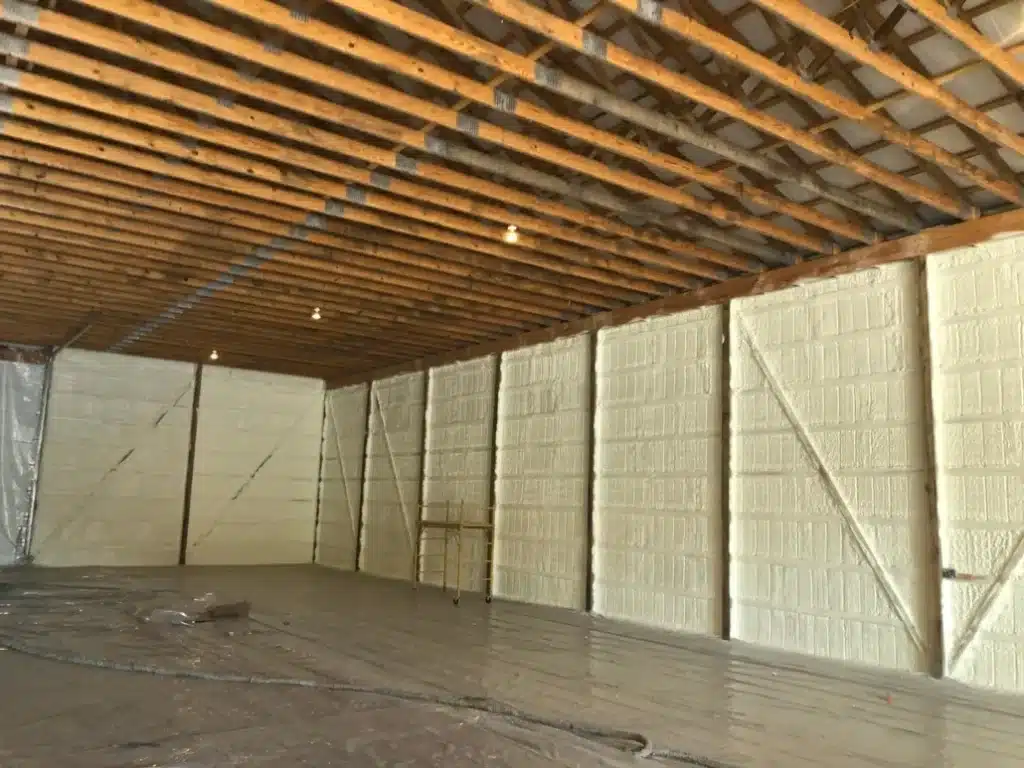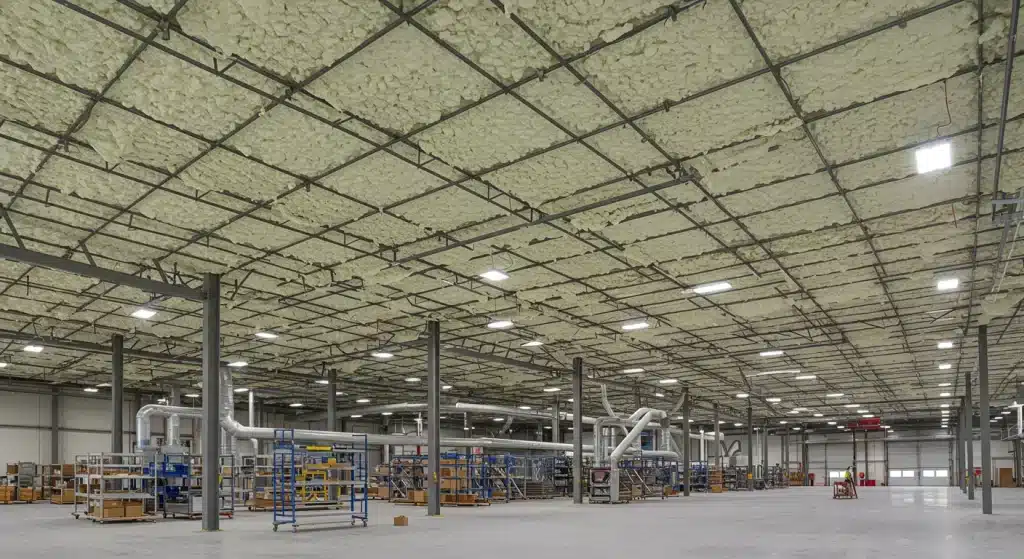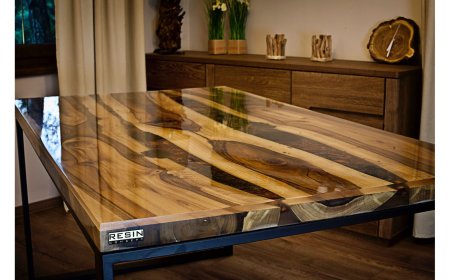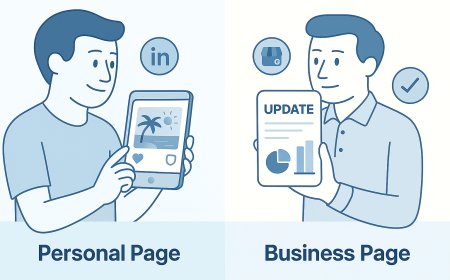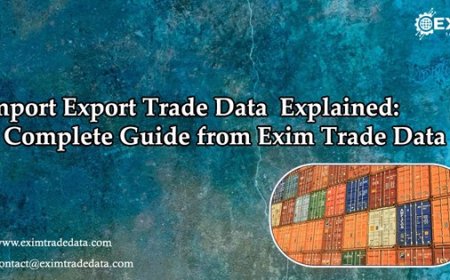How Much Can Your Business Save on Energy Costs with Commercial Spray Foam Insulation in Las Vegas, NV?
Businesses of commercial spray foam insulation in Las Vegas can save 25-40% on annual energy cost. For a typical 10,000 square foot commercial building,
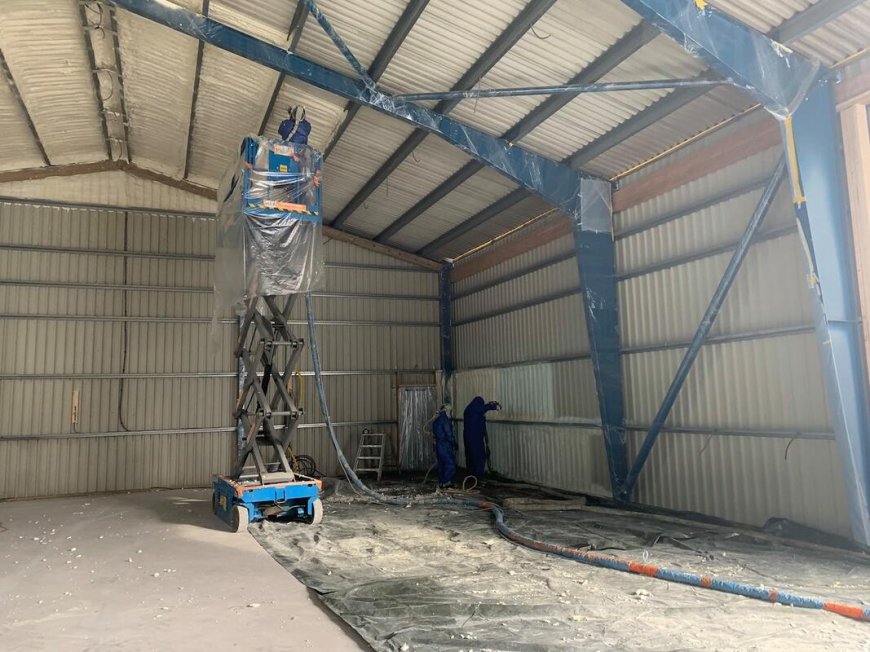
Businesses of commercial spray foam insulation in Las Vegas can save 25-40% on annual energy cost. For a typical 10,000 square foot commercial building, this translates to approximately $15,000-$25,000 in annual energy savings. The extreme desert climate of Las Vegas, with temperatures regularly exceeding 110F in summer and dropping below 40F on winter nights, makes proper insulation particularly impactful for commercial properties where cooling and heating expenses often represent 30-50% of total energy bills.
These savings come from spray foam's superior insulating properties and air-sealing capabilities, which significantly reduce the thermal transfer through roofs, walls, and foundations. Commercial spray foam insulation typically achieves an R-value of 6.0-7.0 per inch (compared to 2.2-3.8 for traditional materials), creating a more effective thermal barrier. Additionally, businesses see secondary financial benefits through reduced HVAC maintenance costs, extended equipment lifespan, and potential tax incentives specifically designed for energy efficiency improvements in commercial buildings.
Energy Savings by Commercial Building Type
The energy-saving potential of spray foam insulation varies significantly based on your business type and building structure.
|
Building Type |
Average Energy Savings |
Annual Cost Reduction (10,000 sq ft) |
Payback Period |
Primary Benefit Areas |
|---|---|---|---|---|
|
Office Buildings |
25-35% |
$12,000-$20,000 |
2-4 years |
Roof and wall insulation, ductwork |
|
Retail Spaces |
30-40% |
$15,000-$25,000 |
1.5-3 years |
Envelope sealing, HVAC efficiency |
|
Warehouses |
20-30% |
$10,000-$18,000 |
2-5 years |
Roof insulation, loading dock areas |
|
Restaurants |
35-45% |
$18,000-$30,000 |
1-2.5 years |
Kitchen areas, cooler/freezer efficiency |
|
Hotels |
25-35% |
$20,000-$35,000 |
2-3.5 years |
Individual room efficiency, common areas |
|
Medical Facilities |
30-40% |
$15,000-$28,000 |
1.5-3 years |
Consistent temperature zones, air quality |
|
Manufacturing |
20-35% |
$15,000-$30,000 |
2-4 years |
Process heat containment, equipment areas |
According to the Department of Energy's Commercial Buildings Energy Consumption Survey, businesses in the Las Vegas climate zone spend an average of $2.15 per square foot annually on energy costs, with HVAC systems accounting for approximately 44% of that expenditure.
BONUS TIP: Businesses with high cooling demands, such as data centers, restaurants, and manufacturing facilities, typically see the fastest return on investment from spray foam insulation in Las Vegas due to the extreme summer temperatures and their continuous operation requirements.
Commercial Spray Foam Types and Performance Metrics
Different commercial spray foam formulations offer varying benefits for Las Vegas businesses.
|
Spray Foam Type |
R-Value Per Inch |
Air Permeability |
Water Resistance |
Ideal Applications |
Expected Lifespan |
|---|---|---|---|---|---|
|
Closed-Cell (Medium Density) |
6.0-7.0 |
Near zero |
Excellent |
Exterior walls, roofs, moisture-prone areas |
30+ years |
|
Open-Cell (Light Density) |
3.5-3.8 |
Low |
Moderate |
Interior walls, ceilings, sound control |
20-25 years |
|
High-Density Closed-Cell |
7.0+ |
Zero |
Superior |
Flat roofs, high-load areas, cold storage |
30+ years |
|
Roofing Foam Systems |
6.5-7.5 |
Near zero |
Excellent |
Commercial roofs, UV-exposed areas |
20-30 years |
|
Fire-Rated Formulations |
5.5-6.5 |
Very low |
Very good |
Areas with specific fire code requirements |
25+ years |
The U.S. Department of Energy notes that commercial buildings in hot, dry climates like Las Vegas should prioritize insulation with high heat resistance and reflective properties to maximize energy efficiency during the extended cooling season.
ROI Timeline for Commercial Spray Foam in Las Vegas
Understanding the financial return timeline helps business owners make informed decisions about insulation investments.
|
Business Size |
Average Installation Cost |
Annual Energy Savings |
Simple ROI Period |
10-Year Net Savings |
20-Year Net Savings |
|---|---|---|---|---|---|
|
Small (< 5,000 sq ft) |
$15,000-$30,000 |
$5,000-$10,000 |
2-4 years |
$30,000-$70,000 |
$80,000-$170,000 |
|
Medium (5,000-20,000 sq ft) |
$30,000-$80,000 |
$12,000-$35,000 |
2-3.5 years |
$60,000-$210,000 |
$170,000-$500,000 |
|
Large (20,000-50,000 sq ft) |
$80,000-$200,000 |
$35,000-$90,000 |
1.5-3 years |
$200,000-$600,000 |
$500,000-$1.6M |
|
Industrial (50,000+ sq ft) |
$200,000+ |
$90,000+ |
1.5-2.5 years |
$600,000+ |
$1.6M+ |
A 2023 study by the Nevada Energy Commission found that commercial buildings in Las Vegas with spray foam insulation maintained a 30% higher property value and attracted tenants willing to pay premium lease rates due to lower operating costs and improved comfort.
Critical Areas for Commercial Insulation in Las Vegas
Las Vegas businesses have specific vulnerability points where spray foam insulation delivers the highest energy-saving impact.
High-Impact Areas
-
Roof Systems: Flat or low-slope commercial roofs in Las Vegas can reach 180F in summer without proper insulation, transferring enormous heat loads to interior spaces. Spray foam roof systems can reduce roof surface temperatures by 30-40% through reflection and insulation.
-
HVAC Ductwork: Commercial ductwork often runs through unconditioned spaces like plenums, causing 20-30% energy loss in conventional systems. Insulating and sealing ductwork dramatically improves system efficiency.
-
Loading Docks and Entrances: These high-traffic areas experience significant air exchange, creating substantial energy losses. Strategic spray foam application helps contain conditioned air.
-
Wall-Roof Junctions: The connection points between walls and roofs often contain thermal bridges that bypass traditional insulation. Spray foam effectively seals these complex junctions.
-
Equipment Rooms: Areas housing HVAC equipment, servers, or process machinery generate excess heat that spray foam barriers can isolate from main work areas.
Energy Loss by Building Component in Las Vegas Commercial Structures
|
Building Component |
Energy Loss Without Spray Foam |
Energy Loss With Spray Foam |
Percentage Reduction |
|---|---|---|---|
|
Roof/Ceiling |
25-35% of total energy |
5-10% of total energy |
70-80% improvement |
|
Walls |
20-30% of total energy |
5-8% of total energy |
65-75% improvement |
|
Air Leakage |
15-25% of total energy |
3-5% of total energy |
75-85% improvement |
|
Windows/Doors |
10-15% of total energy |
8-10% of total energy |
15-35% improvement |
|
Floor/Foundation |
5-15% of total energy |
1-3% of total energy |
70-80% improvement |
BONUS TIP: Even well-maintained commercial buildings typically have enough small air leaks to equal a 3-foot square hole in the building envelope. Spray foam's air sealing properties address these cumulative leaks that traditional insulation methods miss.
Additional Business Benefits Beyond Energy Savings
The financial impact of commercial spray foam extends beyond direct energy cost reductions.
|
Benefit Area |
Impact Without Spray Foam |
Impact With Spray Foam |
Financial Value |
|---|---|---|---|
|
HVAC System Lifespan |
10-15 years average |
15-20 years average |
$40,000-$100,000 in delayed replacement costs |
|
Maintenance Costs |
Regular service calls for overworked systems |
Reduced maintenance frequency |
$2,000-$5,000 annually |
|
Moisture/Mold Issues |
Higher risk, especially in food service areas |
Significantly reduced risk |
$10,000+ in avoided remediation |
|
Indoor Air Quality |
More particulates, exterior pollutants |
Improved filtration capability |
Reduced sick days, increased productivity |
|
Noise Levels |
Higher ambient noise from exterior sources |
30-50% noise reduction |
Improved worker productivity, customer experience |
|
Building Durability |
Normal structural stress from thermal cycling |
Reduced expansion/contraction damage |
Extended building lifespan |
According to the EPA's ENERGY STAR program, every dollar saved on energy in a commercial building represents a $20 increase in company market value, making insulation improvements a significant factor in business asset appreciation.
Things to Consider Before Making a Decision
Before investing in commercial spray foam insulation, evaluate these key factors to ensure you get the best return on investment:
Business Operation Type
Different business activities create unique thermal demands. Food service, data processing, and manufacturing operations typically generate more heat and require different insulation strategies than retail or office spaces.
Building Ownership Status
Building owners benefit from the long-term property value increase of spray foam insulation, while tenants must consider lease terms and potential negotiation with landlords for sharing improvement costs and energy savings.
Current Insulation Assessment
Professional evaluation of your current insulation levels helps determine whether you need a complete insulation overhaul or strategic improvements in specific areas. This prevents unnecessary expenses while maximizing energy savings.
Code Compliance and Fire Ratings
Commercial buildings must meet specific fire rating and building code requirements. Different spray foam formulations offer various fire resistance properties that must align with your local code requirements.
Business Continuity During Installation
Consider how installation might impact your business operations. Many commercial installations can be scheduled during off-hours, but some businesses may require phased approaches to minimize disruption.
Common Questions About Commercial Spray Foam
How does commercial spray foam differ from residential applications?
Commercial spray foam applications typically use higher-density formulations designed for larger structures and more demanding environments. Commercial installations generally cover larger areas, require specialized equipment for high-volume application, and must meet stricter fire and building code requirements. While the basic chemistry is similar, commercial applications often incorporate additional features like enhanced UV protection for roofing systems and specific fire-resistant additives required by commercial building codes.
Will my business need to close during installation?
Most commercial spray foam installations can be scheduled during off-hours or weekends to minimize business disruption. For larger projects, phased installation approaches allow businesses to maintain operations throughout the process. The installation area requires 24-48 hours of restricted access during and after application for curing and ventilation, but rarely requires complete business closure except in smaller facilities where separation from work areas isn't possible.
How does spray foam perform in Las Vegas' extreme heat?
Spray foam insulation performs exceptionally well in Las Vegas' extreme temperatures because it maintains its insulating properties even when exposed to high heat. Unlike some traditional insulation materials that can degrade or compress under sustained high temperatures, quality spray foam maintains its structure and R-value. Additionally, its reflective properties help reject radiant heat from the intense desert sun, further reducing cooling demands during the extended summer season.
Are there specific business tax benefits for commercial spray foam insulation?
Yes, several tax incentives may apply to commercial spray foam installations. The federal Section 179D Commercial Buildings Energy Efficiency Tax Deduction allows qualifying businesses to deduct up to $1.88 per square foot for energy efficiency improvements. Additional incentives through utility companies and local programs often apply specifically to businesses in high-energy-demand regions like Las Vegas. A qualified tax professional can provide guidance on current incentives applicable to your specific business situation.
FAQ
What makes spray foam more effective than traditional commercial insulation?
Spray foam creates both an insulation barrier and an air seal in a single application, while traditional commercial insulation only addresses thermal transfer without stopping air movement. This dual function eliminates the need for separate air barrier systems and ensures complete coverage of complex surfaces and penetrations. In Las Vegas commercial buildings, where air leakage can account for 25-40% of cooling losses, this comprehensive approach typically delivers 30-50% better energy performance than traditional insulation methods.
How long does commercial spray foam insulation last in Las Vegas buildings?
Commercial spray foam insulation properly installed in Las Vegas buildings typically maintains its performance for 20-30+ years depending on the specific formulation used. Closed-cell and high-density systems often exceed 30 years, while some roofing applications may require recoating of the protective top layer after 15-20 years. This longevity significantly exceeds the 7-15 year average lifespan of many traditional commercial insulation systems, especially in Las Vegas where extreme heat accelerates the degradation of conventional materials.
Can spray foam insulation improve my building's energy efficiency rating?
Yes, commercial spray foam insulation typically improves a building's energy efficiency rating by 1-3 points on the ENERGY STAR scale and can help achieve points toward LEED certification. Buildings with spray foam insulation generally test 20-40% better on air tightness measurements used in energy audits and building performance assessments. These improved ratings can translate to marketing advantages, qualification for energy efficiency programs, and potentially higher property valuations for commercial real estate in the Las Vegas market.
Does spray foam insulation work for all types of commercial roof systems?
Spray foam systems work with most commercial roof structures including metal, concrete, built-up, single-ply membrane, and modified bitumen roofs. However, roofs with significant water damage, advanced deterioration, or structural issues may require remediation before spray foam application. Spray foam roofing systems are particularly advantageous for Las Vegas commercial buildings with complex roof penetrations, equipment mounts, or irregular surfaces where traditional insulation methods often create vulnerable points for energy loss and water intrusion.
How does the return on investment compare to other business improvements?
Commercial spray foam insulation typically offers a 25-60% annual return on investment (ROI) through energy savings alone, placing it among the highest-performing business capital improvements. This ROI exceeds most equipment upgrades, solar installations (typically 10-30% ROI), and many operational improvements. When combined with available tax incentives and the increased property value, spray foam insulation frequently outperforms other capital investments while delivering the additional benefits of improved comfort, reduced maintenance costs, and extended HVAC equipment lifespan.
Ready to Reduce Your Business Energy Costs?
Commercial spray foam insulation offers Las Vegas businesses a proven strategy to reduce energy costs by 25-40% annually while improving building performance and comfort. The extreme desert climate makes these improvements particularly valuable, with most businesses achieving full return on investment within 1.5-4 years followed by decades of continued energy savings.
Beyond the direct financial benefits, properly insulated commercial facilities experience reduced HVAC maintenance costs, extended equipment lifespan, improved indoor air quality, and enhanced occupant comfortall factors that contribute to better business operations and property values.
For a professional assessment of your business's potential energy savings with commercial spray foam insulation, contact Supreme Spray Foam LV today.
Supreme Spray Foam LV
Phone: (702) 904-9895
Email: info@supremesprayfoamlv.com
Reviewer:
Michael Carter reviewed this article using insight gained over 12 years in the spray foam business. His feedback focused on helping contractors reach new customers without overcomplicating their message.






























